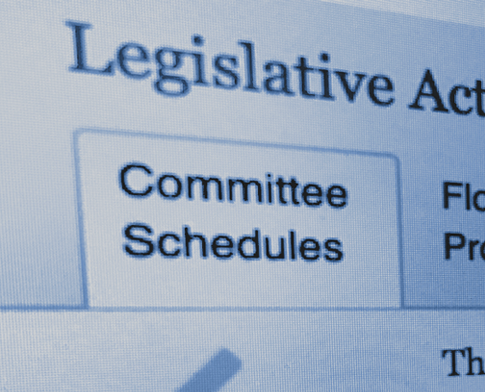Health Update (July 30)
It was a busy week in Congress on health priorities before heading to August recess as the Senate Finance Committee passed an overhaul of Medicare and Medicaid drug payments, the Senate HELP Committee announced its decision to hold off on their surprise billing legislation until September, and sequestration on Medicare was included in the Budget Deal reached by Congress earlier this week.
Senate Finance Committee Markup
The Senate Finance Committee held a markup on Thursday, July 25, during which it approved “The Prescription Drug Pricing Reduction Act of 2019.” The Committee voted 19-9 to pass a significant overhaul of Medicare and Medicaid drug payments. The next steps are unclear as the Senate HELP and Judiciary Committees have both passed separate pieces of legislation. All three efforts are likely to be combined before heading to the chamber’s floor sometime this fall. The Congressional Budget Office estimated that the proposal would save taxpayers $100 billion over 10 years through both Medicare and Medicaid changes. Though there was much talk of bipartisan work into this bill, there seemed to be a bigger rift throughout the Committee than advertised. All of the “no” votes were from Committee Republicans, who opposed the inflation caps in Part D. There was also strong contention throughout the markup regarding the free market in Part D, the recent court battles involving the ACA, and pre-existing conditions. Numerous senators from both parties indicated that while they may have voted to move the bill through committee, there still is much work to be done to vote “yes” when the bill heads to the Senate floor. To read a more detailed summary of this markup, click here.
Surprise Billing
Senate HELP Committee on Hold, But Nearing Agreement
Senate HELP Committee Chairman Lamar Alexander (R-TN) and Ranking Member Patty Murray (D-WA) said the Senate doesn’t have time to consider their committee’s cost-cutting package, which includes legislation to end surprise billing and lower drug prices. The decision comes as multiple senators still have holds on the surprise billing aspects of the legislation and the House and Senate versions of the bill are not in line. Chairman Alexander and Sen. Bill Cassidy (R-LA) are nearing an agreement to add an arbitration backstop to the committee’s legislation, bringing the Senate plan more in line with the House version. Cassidy expects they’ll finalize the policy over the August recess. The Senate’s surprise billing legislation currently relies on a benchmark payment rate for out-of-network charges and does not include arbitration. But several senators, led by Cassidy, have spent months lobbying Alexander to add an arbitration backstop to the bill. Cassidy confirmed that he and Alexander are on track to soon reach an agreement on arbitration and his office has been working to address Alexander’s concerns. Alexander worried that Cassidy’s proposal wouldn’t prevent providers and insurers from staying out of network to gain a market advantage. Cassidy said his office has since tweaked his arbitration proposal to ensure that insurers who are staying out of network as a business model would face a disadvantage in an independent dispute resolution process. [1]
Budget Deal
Medicare Sequestration Extended in Budget Deal
The budget and debt ceiling deal reached by Congress and the White House extends sequestration on Medicare through 2029 to help pay for higher budget caps on FDA and other non defense agencies — a move the Congressional Budget Office (CBO) says will increase spending by around 2% for most Medicare benefits through September 2027. Spending would then be reduced by 2% from October 2027 through March 2029, and reduced by 4% from April through September 2029, CBO says. To pay for lifting the caps, the bill extends customs user fees and caps on Medicare spending. CBO estimates the bill would not increase on-budget deficits in any decade after 2029. [2]
Individual Health Insurance Market
V-BID X
The University of Michigan Center for Value-Based Insurance Design held a webinar on Wednesday (July 24) to discuss “V-BID X,” which is considered a new plan option in the individual health insurance market.
The main components of the V-BID X Design include:
- Selection of high-value services for reduced cost-sharing
- Level of cost-sharing reduction for high-value services
- Selection of low-value services for increased cost sharing
- Level of cost-sharing increase for low-value services
- Determination of the actuarial value of the plan
References
[1] Cohen, Ariel. “Cassidy, Alexander Near Agreement On Surprise Billing Arbitration Policy.” Inside Health Policy. 25 July 2019. https://insidehealthpolicy.com/daily-news/cassidy-alexander-near-agreement-surprise-billing-arbitration-policy
[2] Roza, David. “Budget Deal Extends Medicare Sequestration To 2029.” Inside Health Policy. 23 July 2019. https://insidehealthpolicy.com/daily-news/cbo-budget-deal-extends-medicare-sequestration-2029
HOUSE.GOV
The Week Ahead
For the main events of the next week and more, go straight to the key events on the house.gov website.
SENATE.GOV
The Week Ahead
For the main events of the next week and more, go straight to the key events on the senate.gov website.


